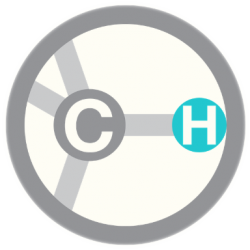Authors: Linda J. Porrino, Katy Migliaresea, Huw M.L. Davies, Elie Saikalia, Steven R. Childers
Life Sciences,
1994, 54, 511-517
In vitro studies have demonstrated that a novel tropane analog, PTT, in which both of the esters of cocaine have been removed is 20 times more potent than cocaine and more selective than cocaine in binding to dopamine transporters. The present studies compared the ability of PTT and cocaine to stimulate locomotor activity in rats. The intraperitoneal administration of PTT and cocaine to male Fisher-344 rats produced dose-dependent increases in spontaneous locomotor activity and stereotypic behaviors. PTT was 10–20 times more potent than cocaine in this behavioral assay, closely paralleling its potency relative to cocaine in dopamine transporter binding and uptake assays in vitro. PTT, however, elicited a qualitatively different profile of stereotypic behaviors, and PTT had a longer duration of action than cocaine. These results show how changes in kinetics and selectivity of tropanes can affect stimulant-elicited behaviors.

